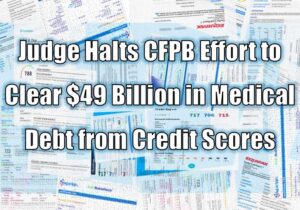
Editorial
To the outside world, collections looks pretty simple, call people and guilt and threaten them into paying money they owe. The reality is, collections is perhaps the most complicated and litigious area of any lending institution. Think of all of the interconnecting regulations pertaining to bankruptcy, credit reporting, the FDCPA, the UCC, California’s Reese Levering Act and the archaic FTC rules on telemarketing and they’ll see just how simple it really is.
Amazingly, most of us dance through this legal minefield daily with no trouble at all. Regardless, it is always wise to put on our “thinking caps” from time to time and keep the thought processes of both ourselves and our staff sharp.
As Credit Unions, we vary in size and complexity in processes, but regardless, every department needs a well developed repossession procedure as well as constant legal updates to keep themselves out of trouble.
While I list 8 things, I’m sure I missed a few and within the ones listed, I could probably go on and on for hours with examples of missteps taken in these areas, but for the sake of brevity, I’ll refrain. If a checklist isn’t already well entrenched in your collections department internal policies and procedures, get on the ball, it’ll save you a lot of headaches. While I’d written this piece for California, there are some universal truths in here for not only all states, but bank collections departments as well.
Title and Contract
- Are you even on the title? Just because you were, or thought you were doesn’t mean the vehicle hasn’t been lien sold, resold or never perfected.
- Direct loans have recently shown a propensity for fraud which can include numerous loans on the same vehicle or vehicles that have undisclosed lender liens or VIN’s that just plain don’t exist.
- Is the contract securing your loans identifying the same vehicle on your title?
- You’d be amazed how many times a vehicle on a sale is changed or is simply misidentified by the dealer. If this is wrong, you’ll probably have a laundry list of errors after the repo, all of which have the potential to earn you an invitation to a deposition and or a court room!
Notice of Cure
- While California doesn’t require a notice of cure, always double check your repossession association books or go online and verify before assigning anything out of state.
Bankruptcy Violations
- Take a minute to run a credit report or check Pacer to verify a bankruptcy wasn’t filed without you being properly notified. It doesn’t matter if you knew, a violation of the automatic stay is an offense that can get your Credit Union sanctioned.
Wrongful Repo
- Lock the account up! Make sure you can keep tellers from posting funds, make sure your system is well noted to assure that people know not to accept funds and to refer all account activities to collections. Communications is key here. There is no worse feeling than the cold pit in your stomach when you are informed you have a wrongful repo. It turns the tables on you and makes the hunter the hunted.
Violent Incident
- Know your agent! As a Credit Union, odds are pretty good that most of your repossessions occur within a well known set of geographic areas. Establish good relationships with them that make them appreciate and respect your Credit Union.
- Where applicable, always maintain current vendor files including current and old copies of their licenses and bonds.
- Avoid forwarding companies! Using a “Facilitating Service”, “Transitioning Service” or “Forwarder”, whatever name is used, allows an outside company to place your repossession orders for you. You are placing all of your trust on a revolving door of people on all sides who are managing your assignments and you never know what balls will get dropped.
- Remember this “No Hold Harmless Agreement will ever absolve you of any and all legal action! The lender always gets dragged into the litigation”
Notice of Intent
- The conflicting rules of the UCC and Reese Levering Act make the notification requirements rather onerous in the state of California. Know them and know them well. When in doubt, err on the side of discretion to the more stringent Reese Levering requirements.
- Leilana vs. Bank of America, Arcadia vs. Juarez, just two major lawsuits that turned the repossession and collections world on its ear for years and cost both banks and Credit Unions millions of dollars. Class action attorneys are still snooping around for irregularities, they’re making a fortune on these decisions even today.
- Make sure your forms are current and have been drafted by an experienced attorney in this matter. Eric North’s forms have to date, been bullet proof if filled out right.
- Make sure they are filled out by the attorneys instructions. Just having the forms isn’t enough. Fill it our right!
Method of Sale
- Public or Private sale, does it matter? Damn right it does! A public sale requires proper notification to the borrower as well as public notifications. Such sales can be deemed as not adhering to the legal requirements of a “reasonable commercial method.” Always keep that term in mind when selecting an auction or sales method. If necessary, get a legal opinion.
Notice of Default
- Don’t let these get backed up. Be timely and be aware that lawyers pour over these documents as well. Make sure your NOD is drafted by an attorney well versed in the legal requirements of this document.
So, if you think this is it, just wait, more things will come up. If all of my years in this industry has taught me anything, it’s that there will always be lawsuits over repossessions, liquidations and notifications. Stay abreast on changes and treat this process as carefully as you would if you were dismantling an atomic bomb. Always cut the blue wire!
Kevin Armstrong
Editor
CUCollector.com
This published editorial is not intended to be legal opinion and should not be used as such. Kevin Armstrong is not a practicing attorney. For proper legal advice always refer such matters to a licensed and practicing attorney.













Outstanding article,very informative.
Eric C
This is without a doubt one of the best articles you have ever published and I and all members of the EAGLE GROUP XX commend you for your efforts. I have testified numerous times as an expert witness on wrongful repossession cases where if these policies and procedures would have been followed there would have been been no “cause of action”. Our agency verifies the clients lien on the mortgaged property, checks for proper VIN and description and checks bankruptcy records for filings prior to working an assignment in an effort to keep our clients out of the court room. All responsible professional Recovery Specialists and all lending institution clients should cut and paste your article into their SOPs. Again,thank you and your staff for this very timely and well written article.